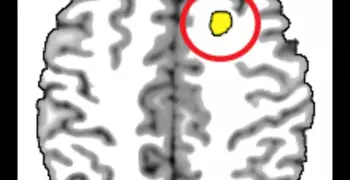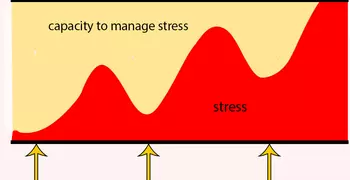How to Try a Mindful Moment: R.A.I.N.

Skillfully dealing with challenging thoughts and emotions means recognizing and working with them rather
than trying to bypass them.
- Research indicates that simply labeling an emotion calms the emotional centers in our brain.
- The practice of paying attention with an open attitude decreases repetitive negative thinking and avoidance strategies, both of which underlie anxiety.
- An open attitude creates a greater ability to tolerate difficult situations. We can dis-identify from thoughts and emotions and simply be with them, instead of controlled by them.
In R.A.I.N. practice, each letter helps us to practice being with our emotions. You can take your time and explore RAIN as a stand-alone meditation or move through the steps in-the-moment, whenever challenging emotions arise.
-
Recognize what is going on
Recognizing means consciously acknowledging what you are experiencing in the moment. Name the emotion, for example ... oh, there is anger.
-
Allow the experience to be there, just as it is
Allow the emotions to simply be there, without trying to fix or avoid anything. You might recognize fear and allow by mentally whispering “it’s ok” or “this is just how it is right now.”
-
Investigate with curiosity and care
Investigating means to call upon your natural curiosity to direct a more focused attention to the present moment experience of your emotions, thoughts and body sensations. Many find it most transformative and healing to gently explore the felt sense of the emotion in the body.
-
Nurture with self-compassion
Try o ering yourself the same kindness you might o er a dear friend who is having a di cult time. Experiment with gestures of kindness that help to comfort, soften, or open your heart. It might be whispering compassionate words of self-caring, or gently placing a hand on your heart, or envisioning being bathed in a warm, radiant light.
Try Mindful Mondays
Free drop-in sessions held on Zoom from noon to 1 p.m. Central.

- Bishop, S. (2004). Mindfulness: A Proposed Operational Definition. Clinical Psychology: Science and Practice, V11 N3.
- Chiesa, A., Serretti, A. (2010). A systematic review of neurobiological and clinical features of mindfulness meditations. Psychological Medicine; 40(8), 1239–1252.
- Farb NA, Segal ZV, Mayberg H, Bean J, McKeon D, Fatima Z, Anderson AK. Attending to the present: mindfulness meditation reveals distinct neural modes of self-reference. Soc Cogn Affect Neurosci 2007;2(4):313-22.
- Smalley, S., Winston, D. (2010). Fully Present: The Science, Art, and Practice of Mindfulness. San Francisco: Lifelong Books.
















